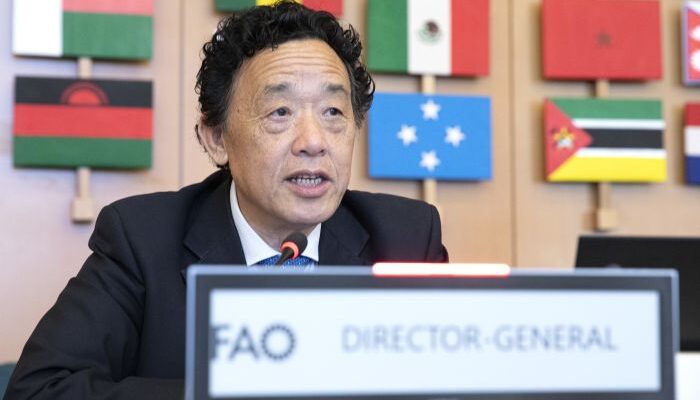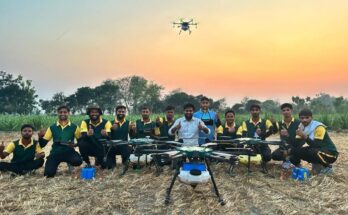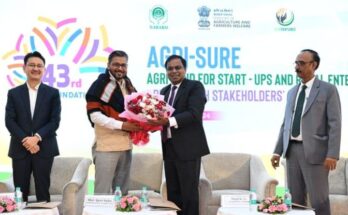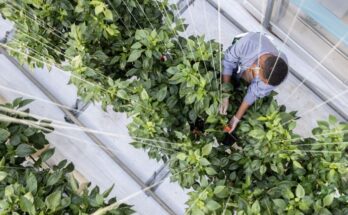Vienna – Director-General of the Food and Agriculture Organization of the United Nations (FAO), QU Dongyu, highlighted the necessity of managing food safety from the outset—beginning with soil, water, agricultural, and post-harvest practices. He emphasised the pivotal role nuclear technologies can play in establishing science-based food standards.
“Nuclear technologies are essential tools for measuring, managing, and controlling food safety and complement the One Health approach,” Qu said, noting that food safety and supply are “fundamental for transforming agrifood systems.”
Qu delivered these remarks via video message at the opening of the “International Symposium on Food Safety and Control” in Vienna. The event is co-organised by FAO and the International Atomic Energy Agency (IAEA) through the Joint FAO/IAEA Centre of Nuclear Techniques in Food and Agriculture.
He pointed out that the centre was founded in 1964 to promote global food security and sustainable agricultural development through the safe use of nuclear science and technologies. “This visionary collaboration and our shared research laboratories are unique within the UN System,” he remarked.
You may also like to read: AGCO invests in Innova Ag Innovation Fund to drive innovative & tech-oriented farming
Qu also emphasised the urgency of their joint efforts, citing the impacts of food and energy price spikes, natural and man-made disasters, the climate crisis, and ongoing conflicts on global food availability, accessibility, and affordability.
Under the theme “Safe Food for a Better Life,” the Symposium (27-31 May 2024) aims to showcase the significant role of nuclear techniques in enhancing food safety and agricultural productivity and to facilitate information exchange among researchers, officials, and other key stakeholders from both developed and developing countries.
Nuclear technologies offer competitive and often unique solutions to combat hunger, reduce malnutrition, enhance environmental sustainability, and ensure food safety and authenticity. FAO and IAEA have a strategic partnership to help member countries use these technologies safely and effectively.
The Joint FAO/IAEA Centre, along with its Agriculture and Biotechnology Laboratory, coordinates and supports applied research through over 25 coordinated research projects annually. These projects engage more than 400 international and national research institutions and experimental stations.
You may also like to read: Artificial intelligence platforms attract visitors’ attention at Brazil Agrishow 2024
Additionally, the Centre supports over 200 national and regional technical cooperation projects each year, transferring these technologies to member countries. The FAO/IAEA Laboratories conduct applied and adaptive research and development, providing standards, protocols, guidelines, training, and specialised services.
The joint FAO/IAEA Centre has been instrumental in leveraging nuclear technologies to address critical issues such as soil fertility, water management, pest control, and food safety. This partnership has led to numerous breakthroughs, including the development of improved crop varieties, more effective pest management strategies, and enhanced food safety protocols.
The Symposium marks a significant milestone in the ongoing collaboration between FAO and IAEA, highlighting the profound impact of nuclear technology on global food and agriculture.
FAO’s Role
The FAO is committed to enhancing collaboration with nuclear sciences and technologies to help all member countries achieve the “four betters” – better production, better nutrition, a better environment, and a better life for all.
You may also like to read: ICRISAT and Plantix’s AI-driven diagnostics impact over 30 mn smallholders in 10 years
Ensuring food safety is a complex process that begins on the farm and ends with the consumer. As the primary international organisation overseeing all aspects of the food chain, FAO provides a unique, comprehensive perspective on food safety. Its long-standing partnership with the World Health Organization (WHO) enhances this holistic view.
With complementary mandates, FAO and WHO address a range of issues to support global food safety and protect consumer health. WHO primarily focuses on public health, while FAO addresses food safety issues throughout the food production chain. For the past 60 years, the joint FAO/WHO Codex Alimentarius has provided a platform for technical and policy consultation, establishing a strong foundation for international food safety standards and consumer protection.
Photo credit: ©FAO/Pier Paolo Cito




